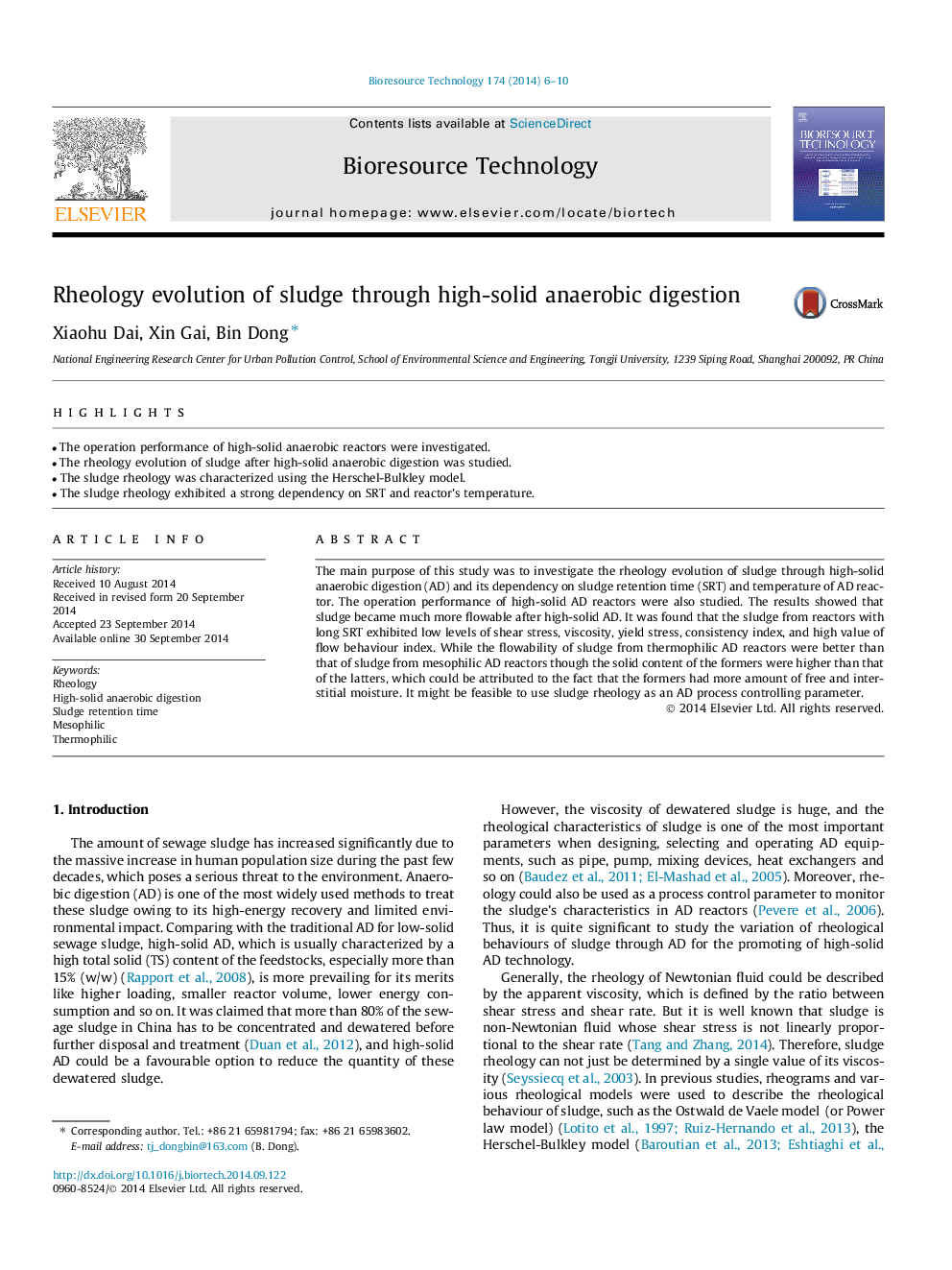| Article ID | Journal | Published Year | Pages | File Type |
|---|---|---|---|---|
| 7075727 | Bioresource Technology | 2014 | 5 Pages |
Abstract
The main purpose of this study was to investigate the rheology evolution of sludge through high-solid anaerobic digestion (AD) and its dependency on sludge retention time (SRT) and temperature of AD reactor. The operation performance of high-solid AD reactors were also studied. The results showed that sludge became much more flowable after high-solid AD. It was found that the sludge from reactors with long SRT exhibited low levels of shear stress, viscosity, yield stress, consistency index, and high value of flow behaviour index. While the flowability of sludge from thermophilic AD reactors were better than that of sludge from mesophilic AD reactors though the solid content of the formers were higher than that of the latters, which could be attributed to the fact that the formers had more amount of free and interstitial moisture. It might be feasible to use sludge rheology as an AD process controlling parameter.
Related Topics
Physical Sciences and Engineering
Chemical Engineering
Process Chemistry and Technology
Authors
Xiaohu Dai, Xin Gai, Bin Dong,
